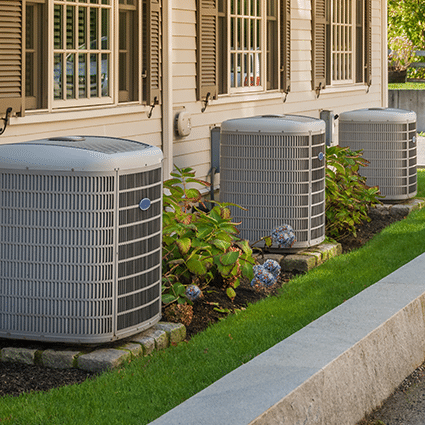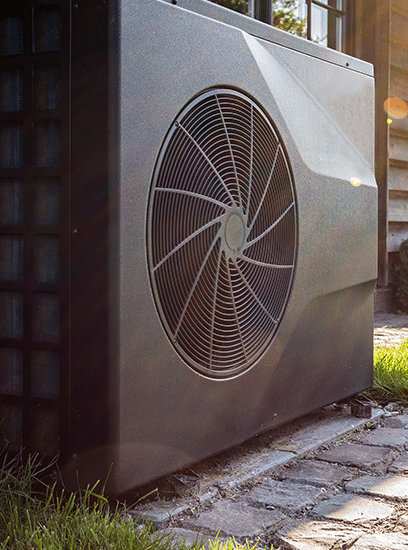Air Conditioners V. Heat Pumps- Which Is Right for You?
It’s not uncommon for Texas homeowners to have heat pumps and air conditioners. Many modern HVAC systems are designed to switch between heating and cooling modes, depending on the season and the home’s specific heating and cooling needs.
Air conditioners are necessary for homeowners in Texas due to the hot and humid climate. Still, heat pumps can also be a useful addition for homeowners who want to be able to heat their homes during the occasional cold snap. Because heat pumps can provide both heating and cooling, they can be a cost-effective and energy-efficient option for homeowners who want one system that can handle both functions.

However, not all homes in Texas may need a heat pump. The decision to install a heat pump should be based on factors such as the size and layout of the home, the existing heating system (if any), and the homeowner’s budget. Fortunately, heat pumps work with traditional air conditioning and mini-split ductless systems.
Heat pumps and air conditioning systems share many similarities but have some key differences. Ultimately, choosing between a heat pump and an air conditioner will depend on each homeowner’s specific needs and circumstances. A qualified HVAC professional at ABA Austin can evaluate your home and recommend the best system based on your home’s square footage and existing ductwork. Here’s a breakdown:

Similarities:
- Heat pumps and air conditioning systems are designed to cool indoor spaces
- Both systems use refrigerant to absorb heat from the air inside the home and release it outside
- Each system has an indoor and outdoor unit connected by refrigerant lines that use a compressor to circulate refrigerant between units
- These systems require professional installation, maintenance, and repair services to ensure optimal performance and efficiency
Differences:
- Heat pumps can reverse the flow of refrigerant, allowing them to absorb heat from the outside air and release it inside the home
- Heat pumps are often a more energy-efficient option than traditional heating systems (such as furnaces) because they don’t generate heat; they move it around.
- Heat pumps may not be as effective at providing heat on its own
Choosing between a heat pump and an air conditioner largely depends on your heating and cooling needs and budget. Here are a few key factors to consider when deciding between a heat pump and an air conditioner in Texas:
Climate
Texas has a warm and humid climate, with hot summers and mild winters. For this reason, air conditioning is a necessity in most Texas homes. However, heat pumps may also be a good option for customers who want to be able to heat their homes during the occasional cold snap.
Energy Efficiency
Heat pumps are generally more energy-efficient than air conditioners because they don’t generate heat. This means heat pumps can save you money on energy bills over time. However, the upfront cost of a heat pump may be higher than an air conditioner’s, so it’s helpful to weigh the long-term energy savings against the initial cost.
Existing Heating System
You may not need a heat pump if you already have a reliable and efficient heating system in your home, like a furnace or a boiler. In this case, an air conditioner may be the more cost-effective option.
Budget
A heat pump can cost more than an air conditioner due to the additional components required to provide heating.
At ABA Austin, we believe it’s important to work with our customers in Texas to determine their heating and cooling needs and recommend the best system for their specific situation. This may involve an evaluation of the customer’s home, including the size and layout of the space, as well as any existing ductwork or heating systems.
If you’ve been considering a new air conditioning system at your home in Texas, reach out to our professional team at ABA Austin. There are many different types of air conditioning, and our team can help you choose which system is right for you and your home.

